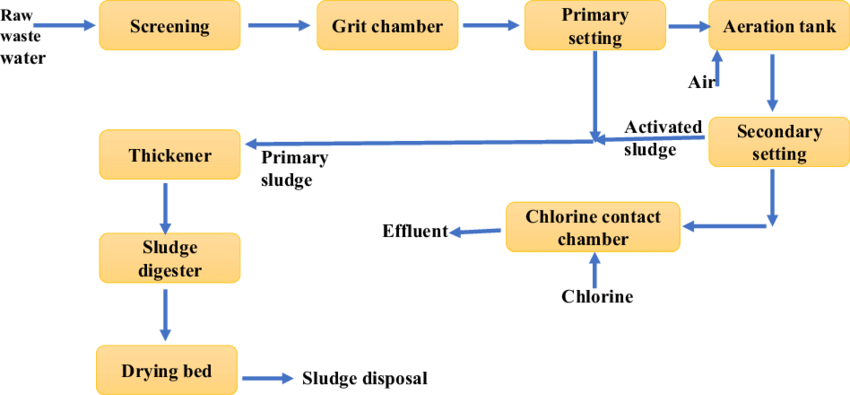Some Ideas on Reclaim Waste You Need To Know
Some Ideas on Reclaim Waste You Need To Know
Blog Article
Fascination About Reclaim Waste
Table of ContentsThe Ultimate Guide To Reclaim WasteThe Greatest Guide To Reclaim Waste10 Simple Techniques For Reclaim WasteFascination About Reclaim WasteSome Known Facts About Reclaim Waste.
Check out the types, occurrences, and types of fluid waste. Domestic sewer waste refers to the waste and items from a household sewage-disposal tank. This kind of waste is produced by humans in houses, schools, and other buildings. This only includes septic systems that have a drain field. The appropriate administration and disposal of residential sewage waste require liquid waste to be transferred to a sewage therapy plant where the proper methods and equipment are put on detoxify and dispose of waste.
Business waste typically consists of prospective hazards, such as flammable products or a combination of liquid and strong waste products, and requires a more innovative and comprehensive disposal procedure. The disposal of business waste usually entails the filtration of waste before transport to ensure safe and appropriate disposal. Hazardous waste is developed from byproducts and runoff of industrial procedures and production.
This kind of waste can not utilize the exact same sewer monitoring transportation or processes as septic or industrial liquids. The hazardous waste administration procedure calls for the inspection and testing of liquid waste before it undertakes the disposal process (industrial wastewater treatment). Runoff waste is the liquid waste that comes from overflow and excess stormwater in extremely booming locations or cities
Drainage waste can create contamination and flooding if not taken care of correctly. Find out more concerning sewage system cleaning and waste monitoring. Making sure correct waste management can stop calamities and minimize environmental damage. Both individuals in residential setups and professionals in commercial or manufacturing sectors can gain from understanding the procedures and guidelines of liquid waste administration.
Reclaim Waste Can Be Fun For Anyone
Call PROS Providers today to learn more about our waste administration and disposal solutions and the proper ways to take care of the liquid waste you create.
(https://reclaim-waste.jimdosite.com/)Do you understand what happens to your water when you end, purge the toilet or drain pipes the washing machine? No? Well, it deserves knowing. This supposed 'wastewater' is not only an important source but, after treatment, will be launched to our land, waterways or the sea. Used water from commodes, showers, baths, kitchen sinks, washings and industrial processes is referred to as wastewater.

water utilized to cool equipment or tidy plant and devices). Stormwater, a kind of wastewater, is runoff that moves from farming and urban locations such as roofing systems, parks, yards, roadways, paths and rain gutters right into stormwater drains, after rainfall. Stormwater moves without treatment straight to local creeks or rivers, ultimately getting to the sea.
The 8-Second Trick For Reclaim Waste
In Queensland, most wastewater is dealt with at sewer therapy plants. Wastewater is carried from domestic or industrial sites through a system of drains and pump stations, called sewerage reticulation, to a sewage treatment plant. City governments develop, preserve and operate most sewage treatment plants. Operators are certified under the Environmental Security Act 1994 to release cured wastewater at an appropriate ecological requirement into waterways.
The Division of Natural Resources suggests city governments regarding managing, operating and maintaining sewage systems and therapy plants. In unsewered areas, regional governments may require owners to install individual or household sewage treatment systems to deal with residential wastewater from commodes, kitchens, washrooms and laundries. The Department of Natural Resources authorizes making use of household systems when they are proven to be reliable.
A lot of stormwater receives no therapy. In some new subdivisions, therapy of some stormwater to eliminate litter, sand and crushed rock has started using gross toxin traps. Wastewater therapy takes place in four phases: Eliminates strong matter. Bigger solids, such as plastics and other things incorrectly released to sewers, are removed when wastewater is gone through screens.
Utilizes little living organisms understands as micro-organisms to damage down and eliminate continuing to be dissolved wastes and great particles. Micro-organisms and wastes are included in the sludge.
Reclaim Waste - The Facts
Nutrient elimination is not offered at all sewage treatment plants because it requires pricey specialized tools. Clear liquid effluent produced after therapy might still consist of disease-causing micro-organisms - industrial wastewater treatment.

This generally indicates wastewater has to be treated or impurities eliminated before it can be released to waterways. Many wastewater flows right into the sewerage system. Under the Act, neighborhood federal governments administer authorizations and permits for environmentally pertinent tasks (Ages) including wastewater releases that could have a neighborhood influence. The division administers authorizations and licences to Periods entailing wastewater releases that may have a regional or statewide effect.
Some Known Facts About Reclaim Waste.
Tracking supplies accurate info regarding water high quality and can verify that licence problems are being fulfilled. The details acquired through monitoring offers the basis for making water high quality decisions.
Report this page